He came. He failed. He conquered.
◊ By Rutaksha Rawat
Visit ORGANIC SHOP by Pure & Eco India
By 2003, Englishman David Jonathan Gower’s Goa-based organic fresh produce business had already completed 10 years.
The last 10 years had been spent in a mad rush, executing the following:
- Moving to India permanently and setting up base in Goa.
- Partnering with a local farmer (Baby Phimester of Baby Farm) and setting up a company, Ambrosia Organic Farms Pvt Ltd, in 1999.
- Reading up furiously on organic farming practices and learning how to make organic inputs.
- Breathing life into his rocky piece of hill land that was so profusely embedded with rocks, it had little to no soil. It took 5 years to create soil on the land and each rock had to be removed manually.
- Cutting terraces into the hillside for cultivation and building bunds to hold the soil in place.
- Building a ‘Worm House’ for vermicomposting.
- Starting and then failing at a dairy called Ambrosia Dairy.
- Starting organic cultivation of lettuce, arugula, heirloom tomatoes and other salad vegetables on his 10 acres.
- Tying up with hotels and restaurants in Goa as their preferred supplier.
Gower was a one-man army working frantic 14-hour shifts.
7 hours of each day were spent behind the wheel, alone.
He’d wake up every day at 3 am, drive 3.5 hours to Changad in Kolhapur, where the farm was located, pick up the produce of the day, drive back another 3.5 hours and then deliver it individually to 60 restaurants and hotels across Goa.
And he was successful. In part.
His soil, enriched with vermicompost, Amrit Pani and other organic inputs, was now fertile and the envy of local farmers.
The vermicompost unit was yielding 10 tonnes of high grade organic fertiliser per year and was widely reproduced by peers.
He had come to be well-known in the procurement circles as the lettuce-giving Salad Baba. Every 5-star hotel property in the state bought his organic vegetables.
There was just one problem: he hadn’t made any money.
The salad business, he discovered, was not lucrative.
By this time, he was pushing 55.
“If you’ve been doing a business for 10 years and haven’t made any money, people look at you sideways. They think you’re a complete idiot,” laughed Gower, during a recent interview.
PLAN B
Gower decided to attempt a pivot away from the salad produce business towards organic groceries.
He realised that although he had not earned much money during his decade-long slog, he had managed to earn the one important asset that could tide him over—warm relations fostered over a decade with a large network of farmers across Maharashtra and Karnataka.
“At the time, farmers were paid very poorly. Between the farmer and the consumer would be a succession of 4-5 middlemen eating away at the profits and leaving precious little for the farmers,” says Gower.
He decided to sell organic foods and create markets for these farmers.
He took on the incumbencies of logistics, marketing, and sales to become the all-in-one middleman. The farmers were pleased with the premiums being offered.
Gower was clear he did not want to enter the Indian kitchen items space, with spices, etc, as it was crowded.
As he had done with the salads, he wanted to offer products directed at the expat crowd in Goa, which was prolific back in the 90s.
He zoned in on Rice Cakes, as he noticed no one else was making them and their production was relatively cost-friendly.
His reverence for legacy grains led him to come up with a range of millet-based and traditional rice cakes. In fact, Ambrosia is the first company in India to have come up with Millet-Based Rice Cakes.
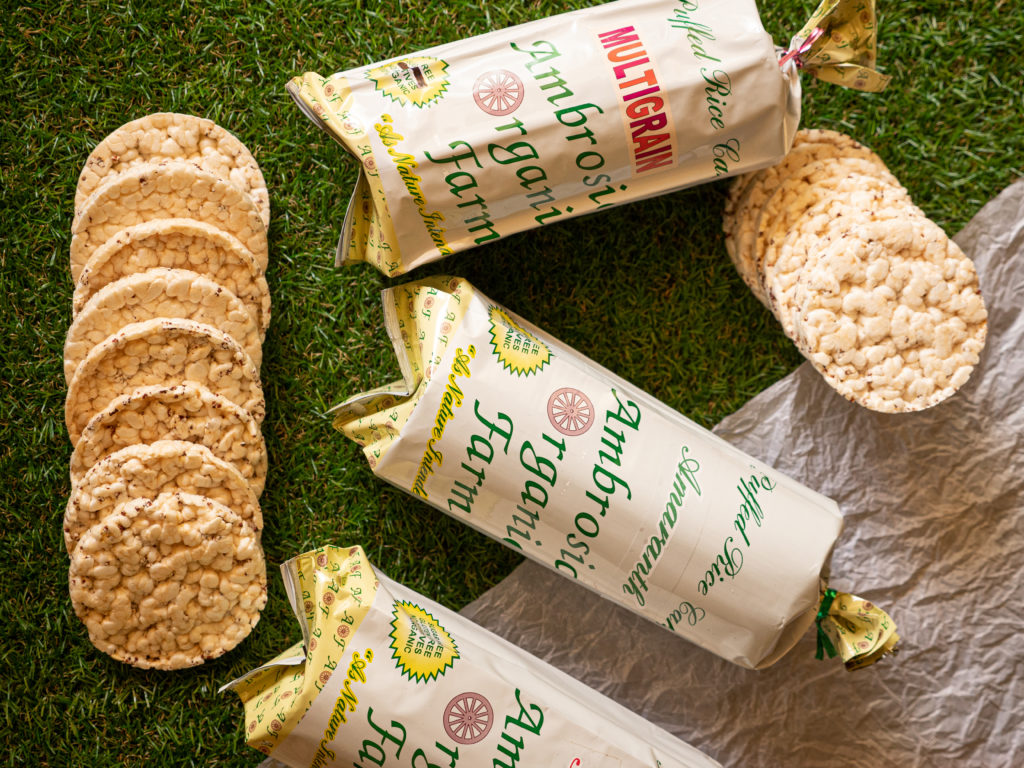
Organic rice cakes by Ambrosia Organic Farm
The idea worked. The business took off.
Revenues increased. New products were added:
Wild Honey from the Nilgiris
Organic Whole Grains
Organic Peanut Butter
Organic Chia Seeds
Organic Lotus Seeds
Organic Flax Seeds
Organic Sunflower Seeds
Organic Sesame Seeds
Organic Sunflower Oil
Himalayan Rock Salt
Organic Moringa Powder
Organic Turmeric
Organic Raw Sugar
Organic Granola
Organic Muesli
Organic Mysoru Red Rice
A sugarcane farmer, impressed with the success of Ambrosia’s wild honey, requested Gower to sell his organic jaggery blocks. The latter asked him to crush them into powder and then sold the powder as ‘Golden Sugar’ to foreigners. It eventually became a crowd favourite.
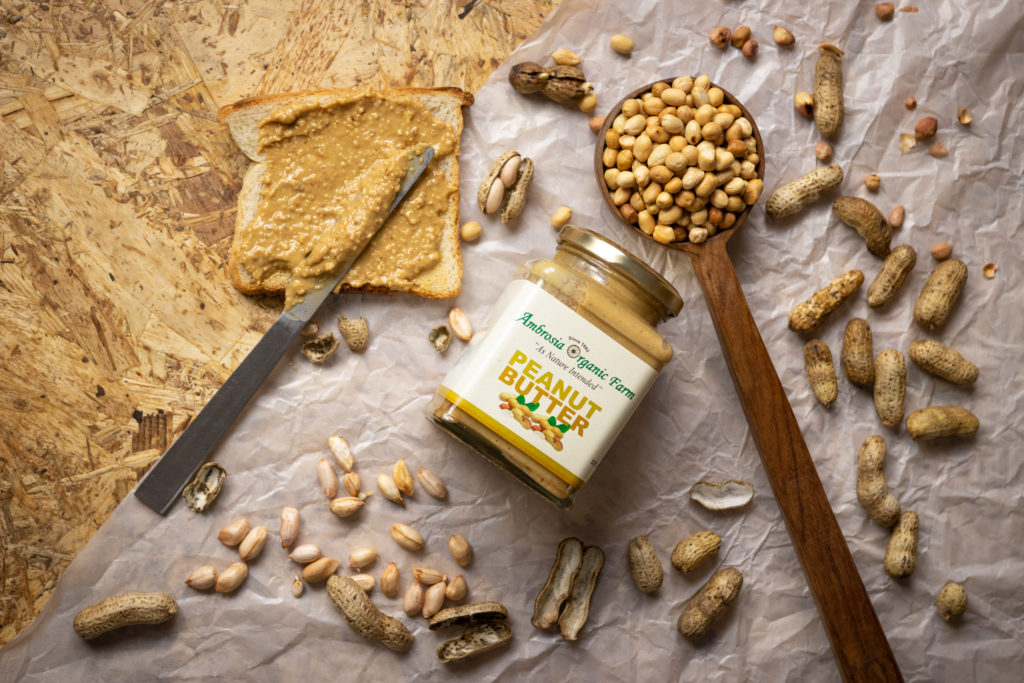
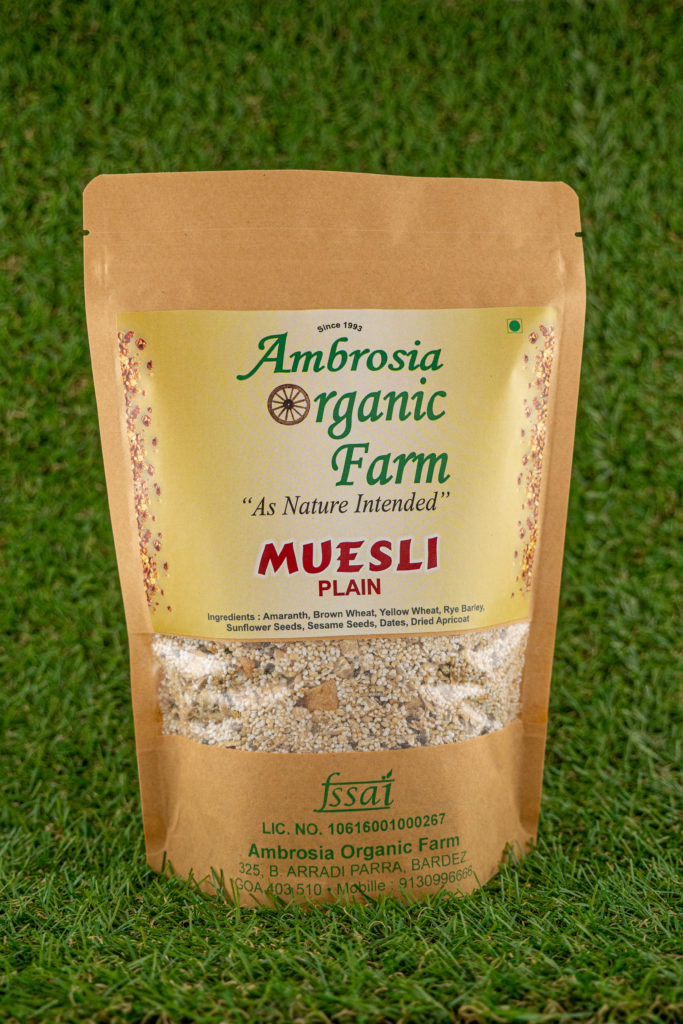
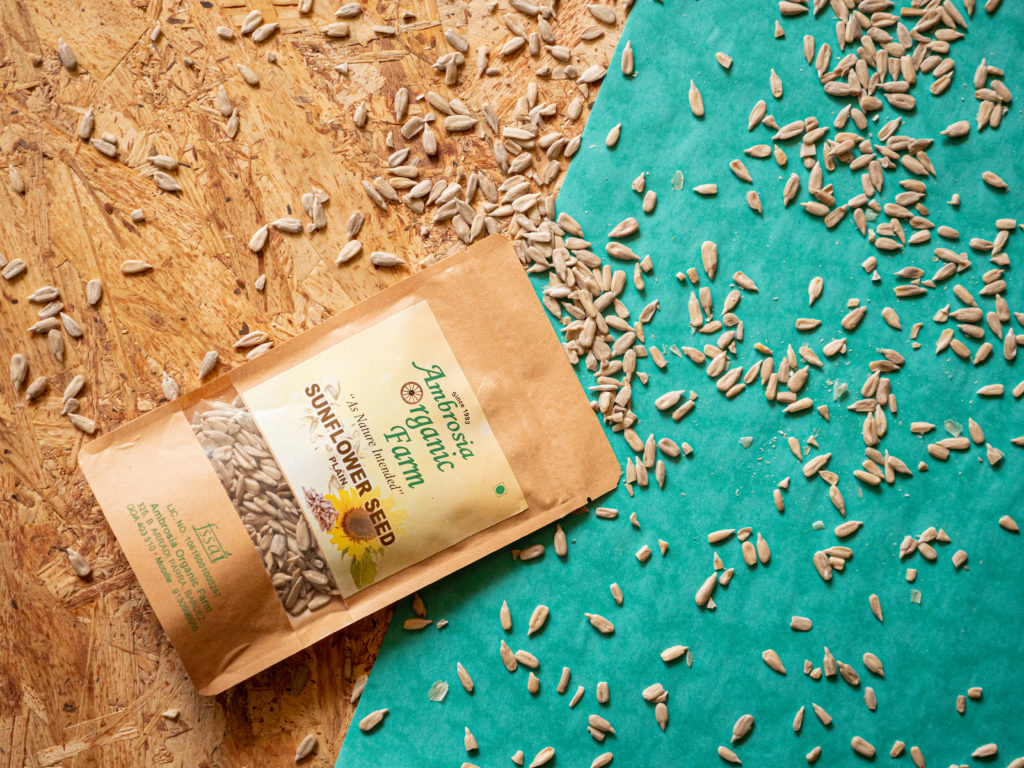
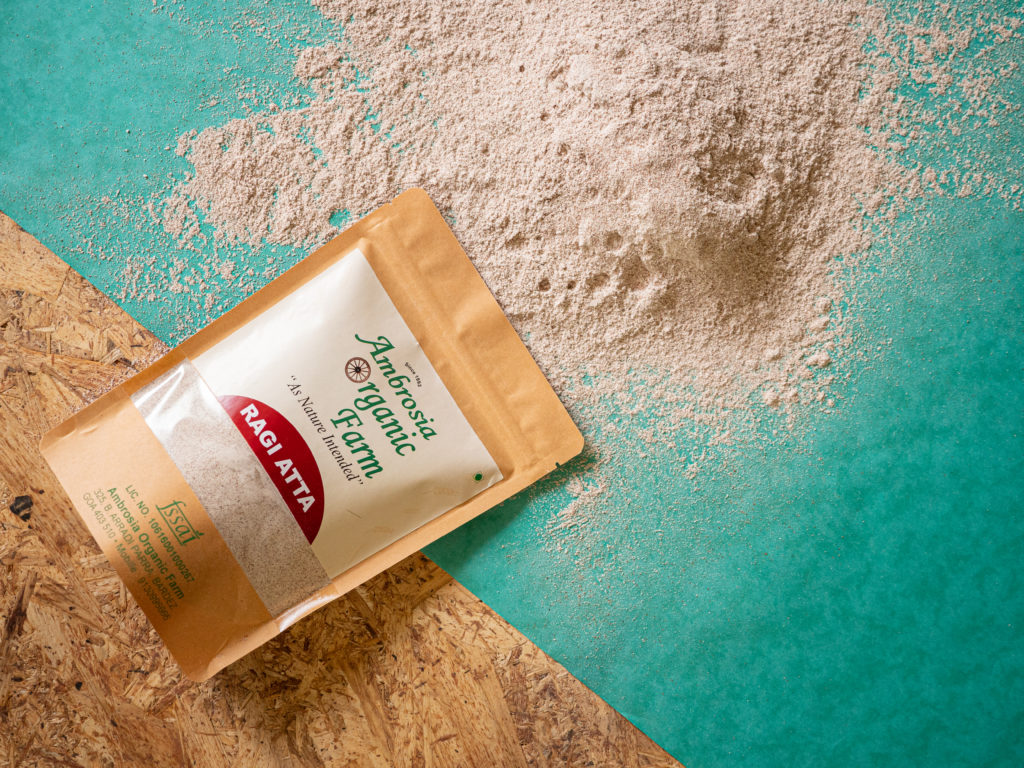
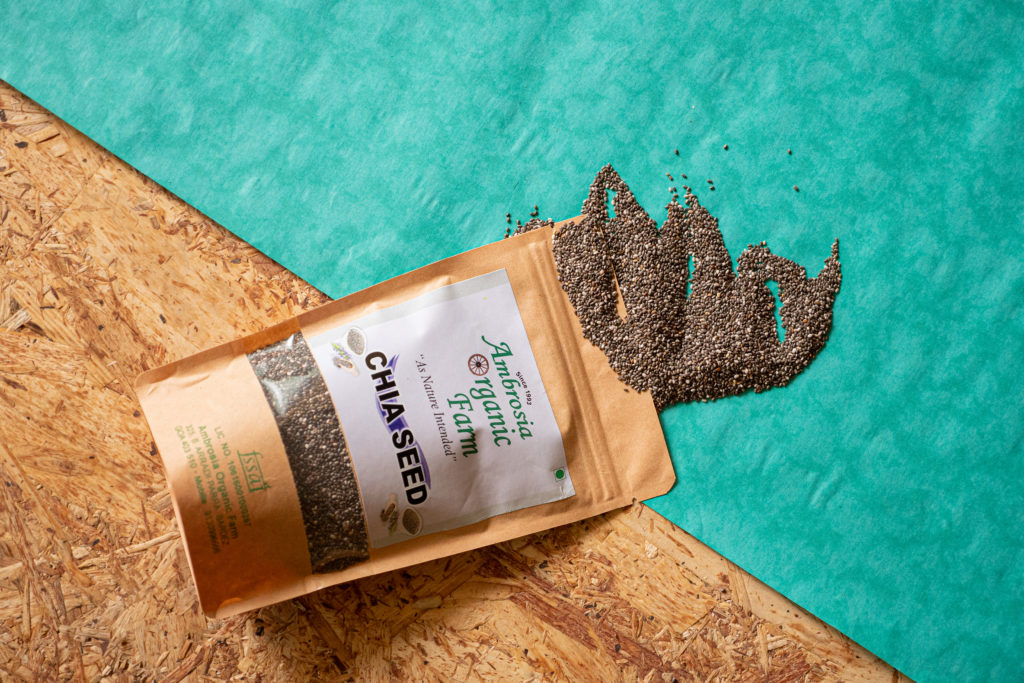
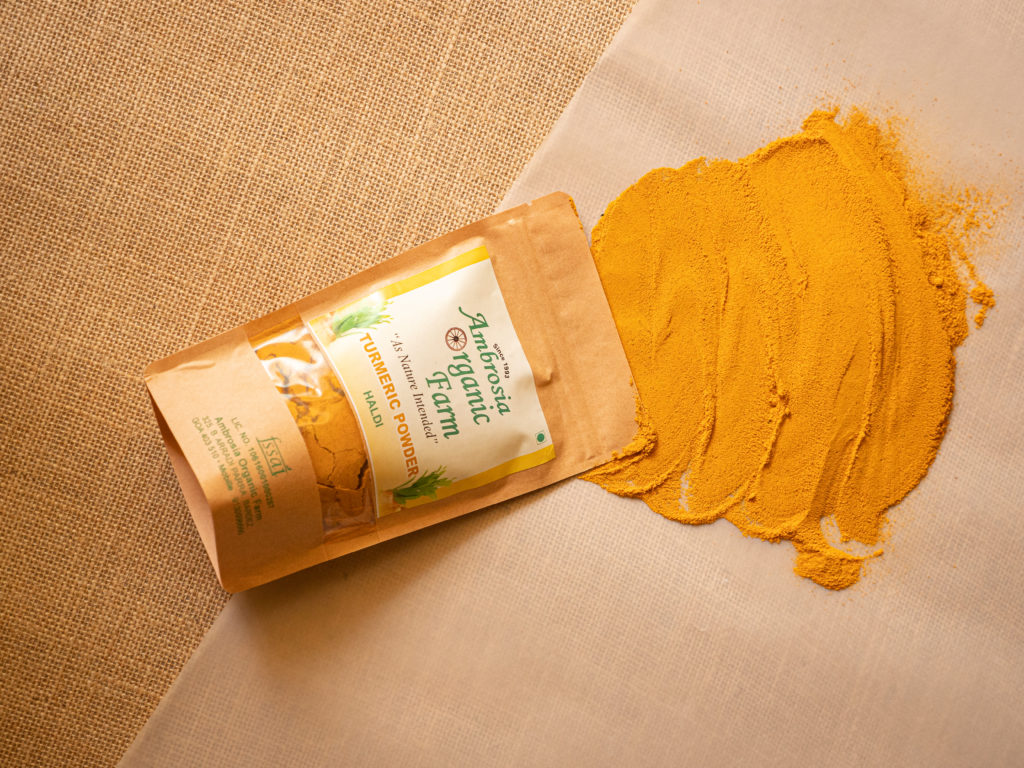
THE NEW AMBROSIA
Today, Ambrosia Organic has completed 27 years. Gower is now 71.
Along with his German wife, Michelle Keleman, he lives in his Parra (Goa) house, which doubles up as a packaging unit for the company.
Backbreaking 14-hour work shifts have given way to cursory supervision. And some well-deserved leisure time.
He is no longer the solo nose-to-the-grindstone worker he once was, nor does he need to be. He now has a team of 45 shouldering the weight.
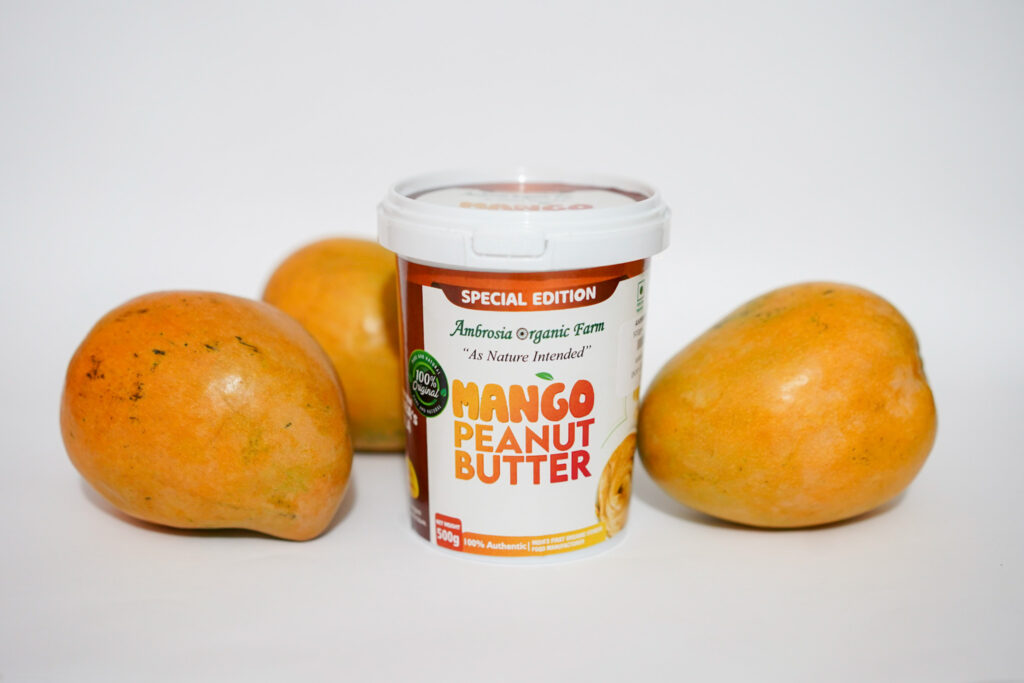
On July 23, 2021, Ambrosia Organic Farm introduced the world’s first mango-flavoured peanut butter. The new launch has come close on the heels of a successful foray with the brand’s Blueberry Peanut Butter
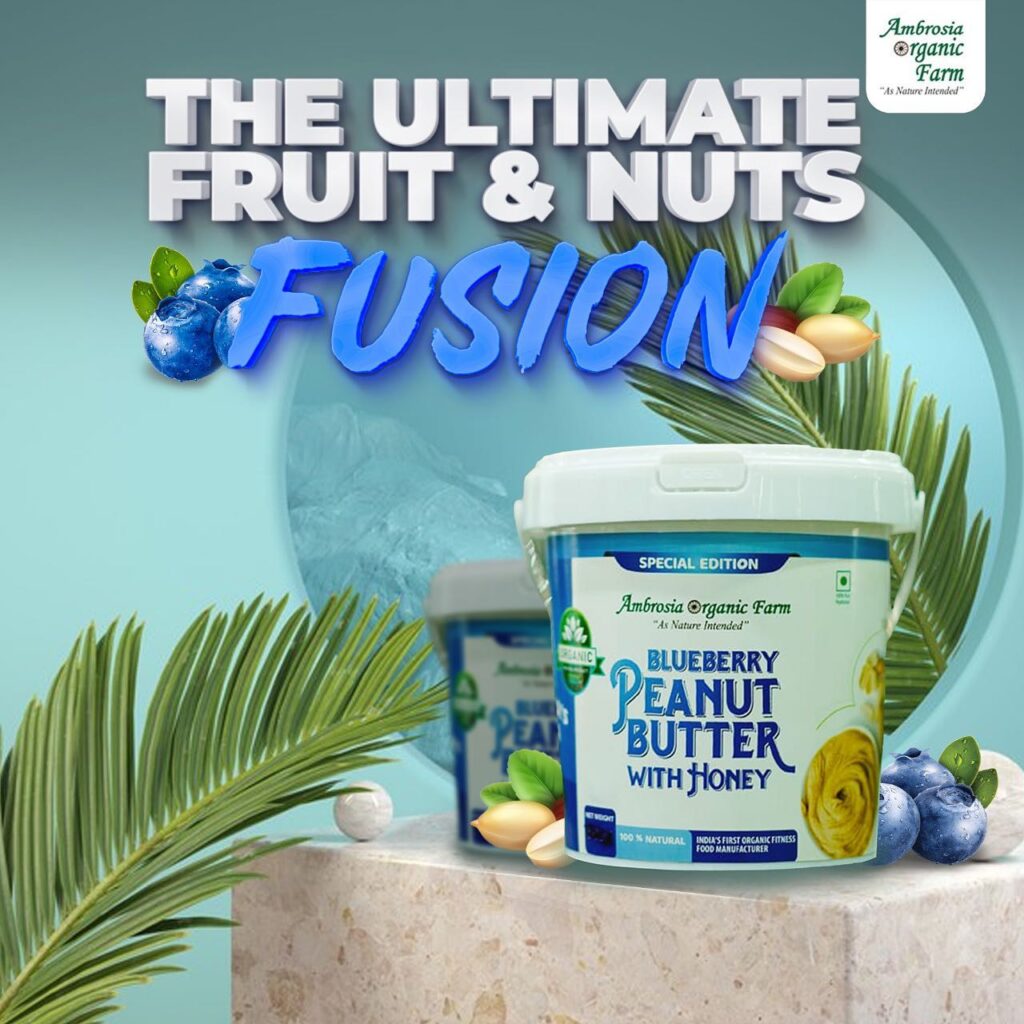
Ambrosia has amplified its acreage to 35, with another 95 acres belonging to 10 associate farmers from neighbouring areas.
Across India, they have a trusted phalanx of 2,000 farmers spanning Karnataka, Maharashtra, Rajasthan, Tamil Nadu and Himachal Pradesh.
Since most of the farmers in India have small landholdings of 2 acres on average, Ambrosia does not insist on organic certification. However, they do screen their farmers carefully and only associate with those that are strictly organic.
The growing business needed new blood, and in 2018, Gower passed the baton to business partner and adopted son, John D’Mello (Janardan Khorate prior to adoption), who has taken Ambrosia pan-India. The company now has two directors—D’Mello and Gower.
“I’m the old Ambrosia. I represent where we came from. Where we are now, and where we’re going, is generation next. He’s young and he’s done so much for building up the company. I’m very old school. He’s the new school. He understands marketing,” Gower showers praise on his son.
D’Mello’s biological father is a farmer, as well as, a neighbour of Gower’s. In 2008, a freshly graduated D’Mello joined Ambrosia as an intern and helped the business grow manifold.
Currently, Ambrosia Organic’s 50 products are available at more than 1,000 brick-and-mortar stores across India, covering almost all major Indian cities (Chandigarh, Delhi, Mumbai, Pune, Dehradun, Dharamshala, Bengaluru, etc).
While the Parra house serves as a processing unit, they have another processing unit at their Amboli farm.
The brand also sells its products through its e-commerce website,
www.ambrosiaorganicfarm.com. Delivery is India-wide.
Although Ambrosia’s product range was conceived as snacks for the western palate, the domestic market has matured and indigenous demand has long surpassed meagre expat consumption.
The company has been growing steadily at 35-40% year-on-year, with the exception of 2020. For Ambrosia, the pandemic served as a tailwind, leading to a surge of 300% in sales.
The brand has expanded into healthy fruit-based peanut butters, having recently launched the world’s first mango peanut butter.
With D’Mello at the helm as General Manager, Gower is keen to go back to what he loves best: learning.
He wants to learn about the latest developments in the field of organic cultivation and is hatching a return to fresh produce farming, which he misses dearly.
“For me it’s always been about the learning process. And I’m still learning,” says Gower.
Update, August 2021: Gower has retired to his home in the UK with wife Michelle Keleman, and D’Mello now runs the venture.
A LITTLE AMBROSIA TRIVIA
Lettuce Culture Shock
Ambrosia was the first to cultivate lettuce, arugula and heirloom tomatoes in Goa. In the beginning, fellow farmers would ask Gower about the lettuce, “What flowers are these?”
Most of them thought that they were looking at foreign flowers and had difficulty understanding that lettuce was a vegetable that was consumed uncooked!
The Bestselling Peanut Butter in Goa
According to Gower, Ambrosia’s organic peanut butter is the bestselling peanut butter in Goa, trumping even conventional peanut butter sales.
What Drew David Gower To Goa
Previously, Gower lived in London and worked in the oil and gas industry.
He also briefly tried his hand at the floriculture business in Holland.
The Goa of the 70s reminded Gower of his childhood as it was behind the UK by 20 years in development. This was the main reason he had been visiting the state since 1978.
Finally, in 1995, he took the plunge. He moved to Goa, bag and baggage, with the intent to build a new life.
How Gower Nurtured His Soil
In the initial days, Gower would collect wet waste from restaurants to use as soil input. Then, he discovered vermicompost. He purchased 2 kg of vermiculture from a gentleman in Pune and eventually made a ‘worm house’.
The soil in Goa and the Deccan at large, is calcium-deficient, so Gower started mixing seashell powder into the soil in order to compensate. He also added crushed blue stone (rock phosphate) in the compost.
Using these techniques, along with the application of vedic organic practices and cow-based inputs such as Amrit Pani, he made his soil rich and fertile.


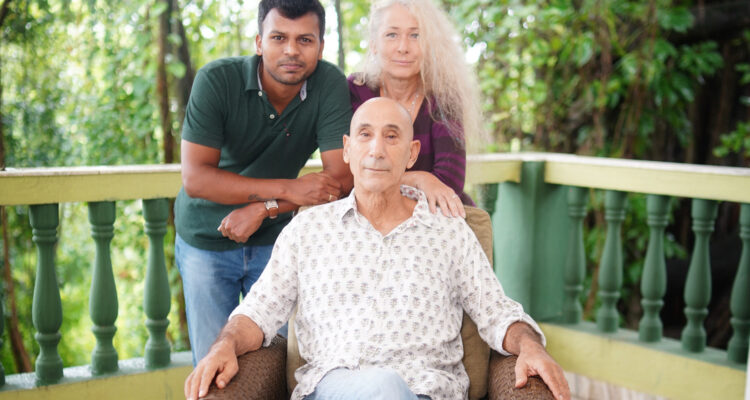
Nice article. Thanks! Best wishes to Ambrosia.
What an inspiring story.
How ! I congratulate Mr.Gower for his comitment !
A great inpsiration…..
Great inspiration have some similar ideas now I know I can work towards